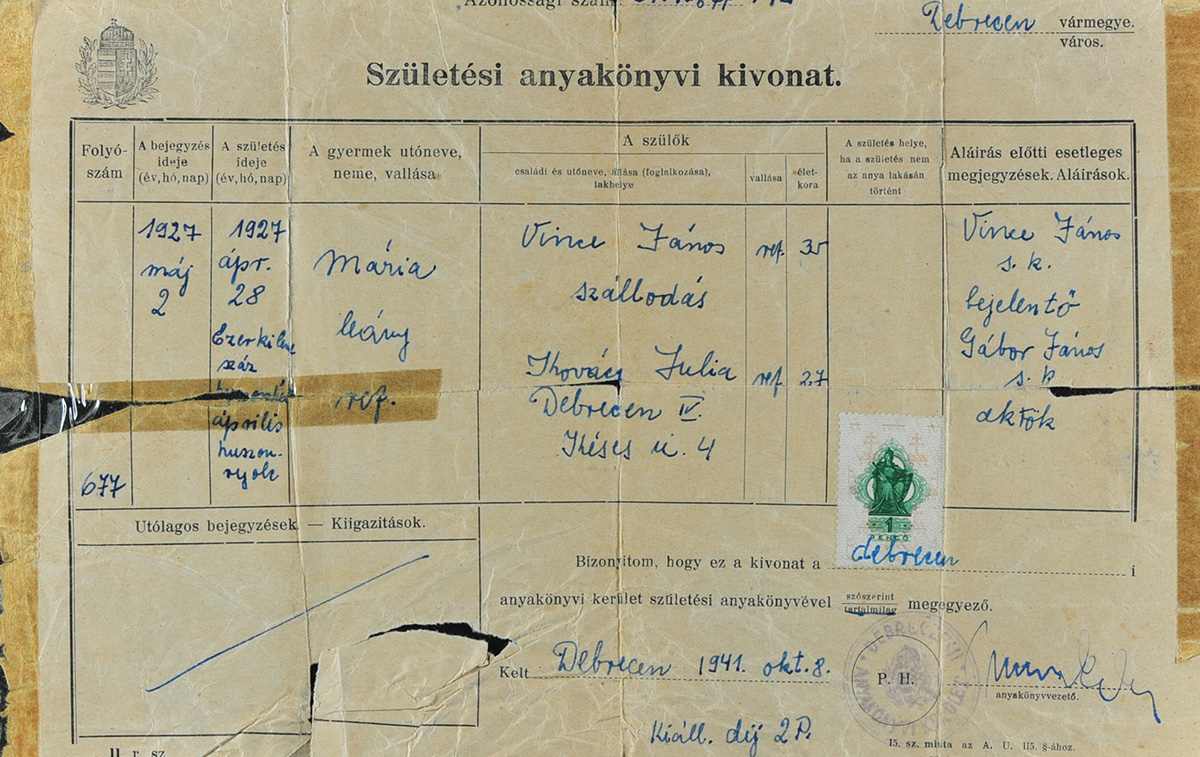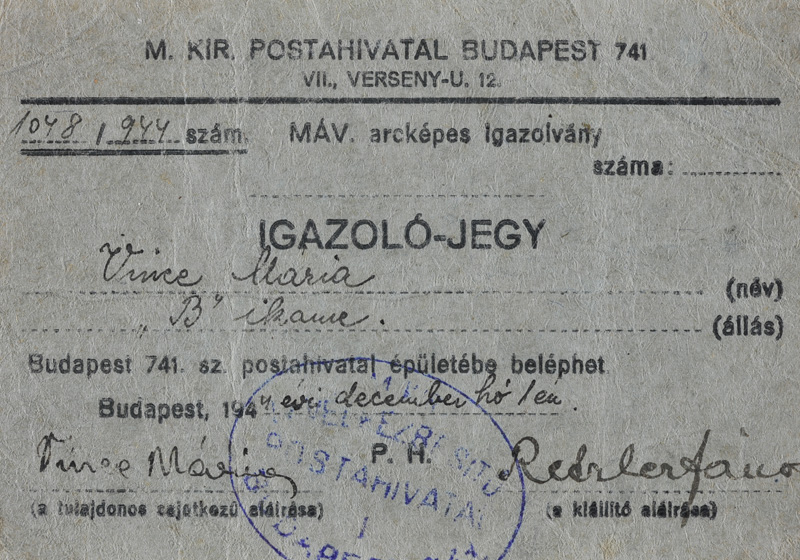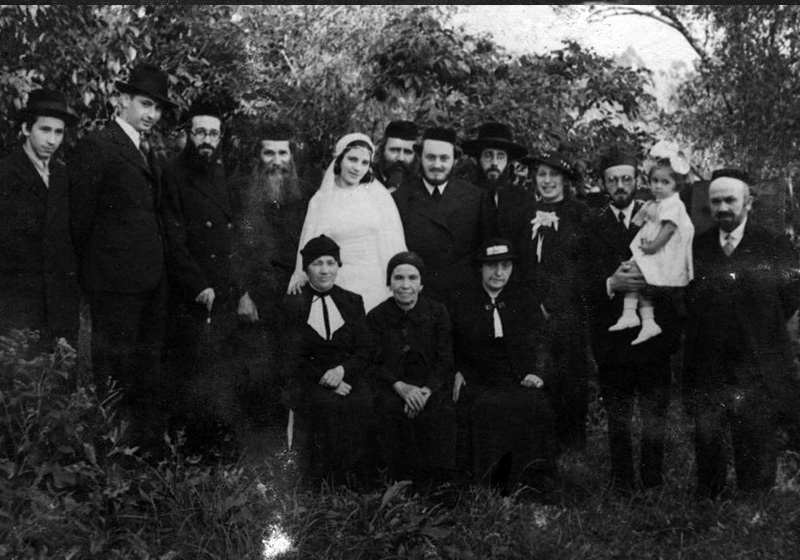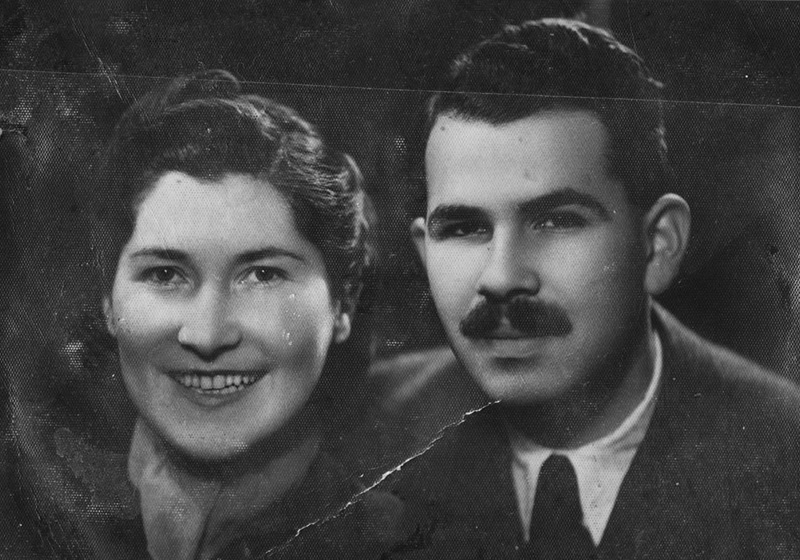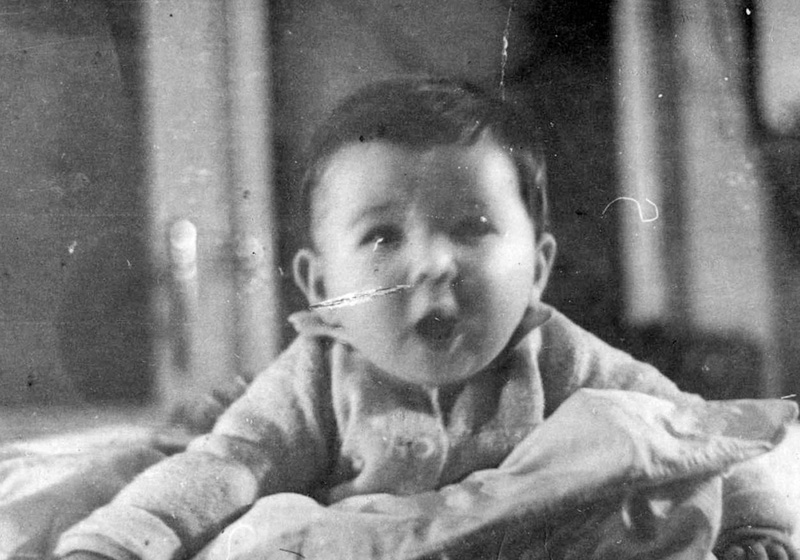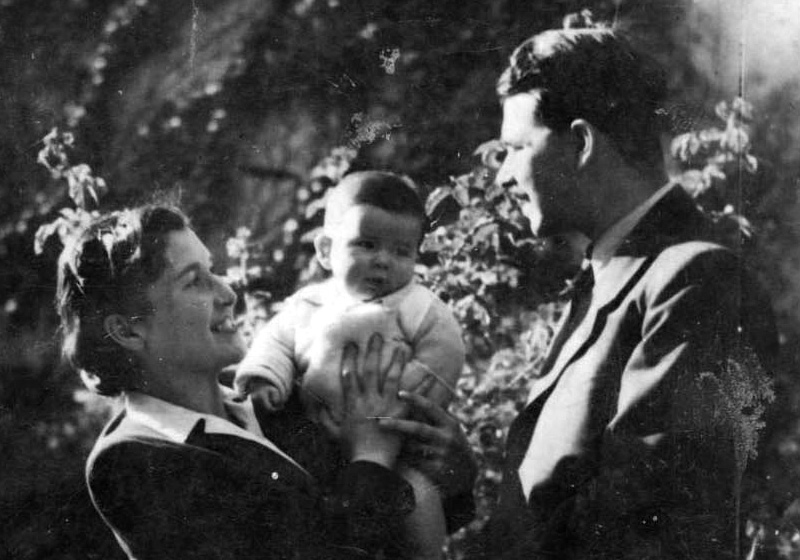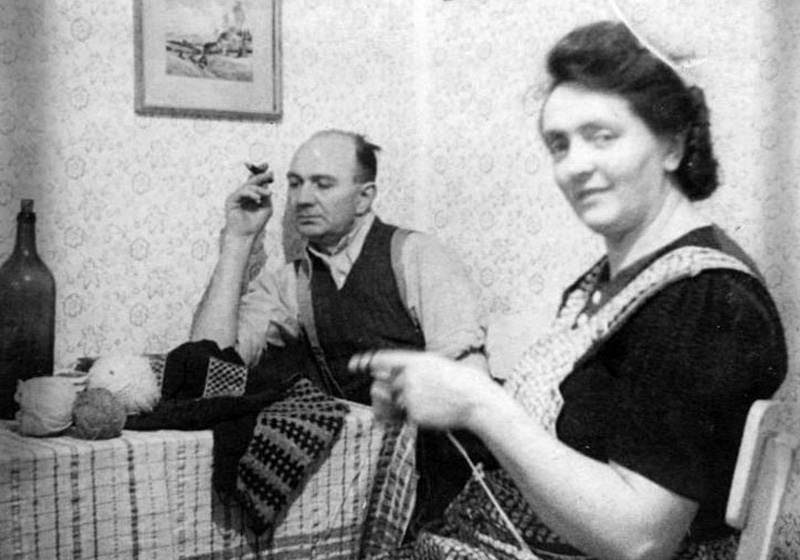"Remember Your New Name "
Surviving the Holocaust under a False Identity
Eva Billiczer Survived in Budapest under a False Identity
Eva (Chava) Billiczer was born in 1927 in Debrecen, Hungary, a younger sister for Adoniyahu-Deinish (b. 1913), Pinchas (b. 1915), Bracha (b. 1916), Miriam (b. 1918) and Chaya-Katy (b. 1922). Her father, Yonatan-Binyamin, the son of a Hassidic rabbi, taught Jewish studies at the Jewish girls' school, and later became a teacher at the Talmud Torah. Her mother, Itel-Yulia née Kraus, ran a restaurant and boarding house. The children were all active in the local Zionist youth movement. Miriam immigrated to Eretz Israel (Mandatory Palestine) in 1936. Pinchas married Hannah Marmelstein, and they settled in Munkacs. Both teachers by profession, Pinchas taught mathematics and physics at the Hebrew Gymnasium in the city. They planned to immigrate to Eretz Israel, but Pinchas's family dissuaded them, pointing out that they both had jobs and that life was good in Munkacs. Their son Yehuda was born in 1942. The same year, Adoniyahu, a member of the "Maccabia" student union, completed his studies at the Rabbinical Seminary in Budapest and received his doctorate. Bracha got married and moved to Budapest too.
The Germans invaded Hungary on 19 March 1944, reaching Debrecen the following day. Adoniyahu joined the Zionist Youth Underground in Budapest, and lived under an assumed identity, posing as Laszlo Dunka. He came to Debrecen and begged his parents and siblings to join him in Budapest, where he could arrange false identities for them as Christians. "In the big city," he said, "No one knows you. It will be easier to manage." His parents refused to leave. Chaya-Katy remained with them as her fiancé had been taken to a Hungarian Army labor camp near Debrecen, and she wanted to stay close by. Eva went to Budapest with Adoniyahu. She left home taking with her a book of coupons in the name of Maria Vince, the housekeeper at the Billiczer home who had to leave her job due to anti-Jewish legislation preventing Jews from employing Christians. Maria left the coupon book behind, so Eva took it with her when she departed for Budapest.
Eva found work at a doll factory and shared a rented room with a Jewish girl who was also working at the factory and living under an assumed identity. Every night, they tied a rope that could be lowered out of their window in case they needed to escape in a hurry. Eva learned the Christian prayers and forced herself to participate in antisemitic conversations. With the help of her sister Bracha, who was also active in the underground, Eva obtained a forged birth certificate in the name of Maria Vince. With this document, she was able to receive a residency permit from the police.
Throughout this period, Eva was not in contact with her family in Debrecen. Adoniyahu travelled there again, armed with forged documents for his parents and sister. At that point, they were incarcerated in the Debrecen ghetto, and he was unable to get them out. On his third attempt to reach them, they were already in the brick factory where Jews were assembled prior to deportation. Adoniyahu was caught with the forged papers, imprisoned and beaten, but managed to escape and return to Budapest.
Eva and her roommate changed residences every few weeks, for fear of being denounced. On one occasion, her roommate was caught by the police, and friends warned Eva not to return home. Her roommate managed to slip away from the police station, and the two of them made their way to Bracha's apartment. All their belongings were left behind in their abandoned room, and they didn't return to the doll factory.
Eva and her friend obtained jobs as postal workers at the central post office in Budapest. "I received a document citing that I worked for the Post Office, and I was given a uniform," relates Eva. "With the uniform, no one would suspect me of being Jewish." Eva found it hard to do her job as she wasn't familiar with Budapest. The constant bombing of the city and the abusive behavior of the antisemitic Arrow Cross men hunting down Jews made her work even more difficult. Adoniyahu and Bracha continued their resistance work, supplying forged papers and hiding places for Jews.
The Red Army liberated Budapest in January 1945. Eva moved to Bucharest, Romania, and joined a Zionist Hachshara (pioneer training program) with a view to immigrating to Eretz Israel. Bracha joined her sister in Bucharest. Adoniyahu remained in Budapest, in the hope that someone from his family would return. His parents Yonatan and Itel and his sister Chaya-Katy all survived, and returned to Hungary. Thanks to Adoniyahu's Zionist activities, all three had been designated to board the Kastner train, but their names did not appear on the list. In June 1944, they were deported from Debrecen to Austria and sent to a forced labor camp near Vienna. They survived with the assistance of Kiesler, the SS camp guard who took them under his patronage. Pinchas, Hannah and their son Yehuda were deported from Munkacs to Auschwitz, where they were murdered.
Eva and Bracha left Bucharest and were reunited with their families in 1946. That summer, Eva and Bracha immigrated illegally to Eretz Israel via Italy, followed by Adoniyahu and Itel in 1947.
In 2013, the Billiczer family's documents and photographs were donated to the Yad Vashem Archives as part of the "Gathering the Fragments" project, among them the forged birth certificate used by Eva Billiczer (later Chava Zelikovitz) and displayed here.

